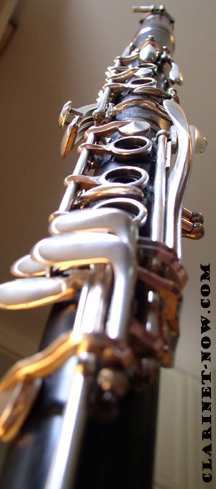10 Beginner Clarinet Goals for Young Students – Also High School Band
Beginner Clarinet Players --- Clarinet is awesome! Are you ready to open your mind to a musical world? Are you ready to express yourself through this amazing woodwind instrument?
One major requirement before you read through some goals, MAKE SURE YOU LISTEN TO CLARINET! Add all types of styles to your Ipod or MP3 player. Follow the Famous on the left to hear Famous Clarinetists.
Listen to this Bumblebee
Yep, I played this Flight of the Bumblebee on Clarinet accompanied by a Squeeze Toy Giraffe. If you want to learn how to increase your speeds for any piece, etude or scale, the information is all here on Bumblebee Loops.
By the way, the video is not AI generated.
Pre-goals

Pre-goals: One of the most common goals, which the beginner clarinet player doesn’t even know is a goal at first, is to play in the school band. “I want to be in band.” Or “I want to play clarinet because neighbor Suzy plays it.” Or “Mom has a one, so that is the instrument I want to play.” “I want to get into football games for free.” Other times, you play a clarinet because someone tells you to. I didn’t know what a clarinet was when I was in 5th grade and the band director suggested my embouchure was suited for it. Actually, I wanted to join the band so I could travel.
No. 1 Goal - MAKE MUSIC!
Beginner Clarinet
1. MAKE MUSIC! Beginner Clarinet. MAKE MUSIC! The clarinet is now an extension of your voice. You can sing through it and play your favorite song, movie theme, TV theme, rock song, etc… once you learn enough about the instrument to pick up the tunes.
Playing your band music and methods is important to learn the correct pitches, rhythms, and expression, but also remember to play some of the music you listen to whether you pick it up by ear or buy the sheet music.
2. You are in band, now, the best way to excel is to practice every day at least 30 minutes. The best way to go from zero to playing is to practice consistently.
3. Chair placement. THIS IS NOT THE MOST IMPORTANT GOAL FOR BEGINNER CLARINET. However, it is one that shows how you measure to your peers. If you practice consistently and listen to everything your director/music teacher tells you, you should win good chairs.
Once you are in a chair and want to move up, ask for a challenge. To win a challenge, know your scales and arpeggios well, and learn how to set Sight-Reading Goals (note sight-reading on the buttons to the left). Also, if you wish to excel faster, seek out a private clarinet teacher.
4. All-city, All-county, All-region, All-state, and Honor Bands are another place to find competition with your clarinet. Some areas have junior high honor bands and you should ask your teachers where and when you can “try-out”.
5. Solo and ensemble contests. This is another place where you can get judged on your playing ability. Understand this, do not just go for it if you are not practicing or did not learn the music. Make sure you understand the rules and know the proper musical editions that the judge wants to hear.
WHAT IS THE DOWN SIDE TO CONTESTS AND ALL-STATE TYPE TRY-OUTS? People but too much weight on it and forget about No. 1, “Making Music.” Continue to keep learning more about music as you are working on the contest pieces, not work on the contest pieces only and forget about music.
6. Athletic bands. Sad to say, but football and basketball pep/marching bands are often the REASON music is in schools. Often, the junior high school bands are able to focus on learning instruments before supporting sports, but in high school, marching bands take at least half of the academic year. What are your goals here as a clarinetist? The best one I can figure is to learn how to fill up your sound but not over blow into a raucous, flat sound.
7. Branch out to different styles. All of the beginner band books and beginner and intermediate method books try to teach you proper musical reading, interpretation, and style. Much of this is based out of the classical style. Once you learn the basic musical structure, you can start branching out.
Often, the next course is jazz, however, much of the time, you have to switch to saxophone to join a school jazz band. Switching to saxophone is somewhat easy for a clarinetist. Just remember this, learn the jazz style and make sure you “solo” on clarinet some in jazz band. This is known as doubling.
Other styles to consider are Dixieland jazz, Klezmer, Blues, as well as any cultural group you are from Irish, African, Eastern European, Asian, etc… Also, if your school or local community has an orchestra. Give it a try.
8. Solo competitions - look to your local symphony orchestra or chamber music society to see if they have a solo competition. You might win a prize and the opportunity to solo with the group.
9. Colleges – You do not have to major in music to enjoy playing your instrument in college. Some colleges offer music scholarships to non-music majors. Also, playing in a wind ensemble or the college sports bands are attractive to join in the big games, etc… If you do want to major in music, my greatest advice is to major in Music Education and practice like a Performance Major. This is thinking way out beginner clarinet.
10. MAKE MUSIC (Yep, a reiteration of No. 1, so do you think it is important? I do) – play to your heart’s desire. Take the above advice and you will go from Beginner Clarinet to Advanced Clarinet in no time.

